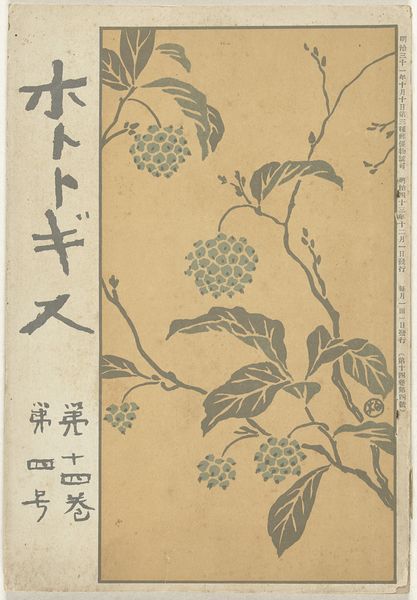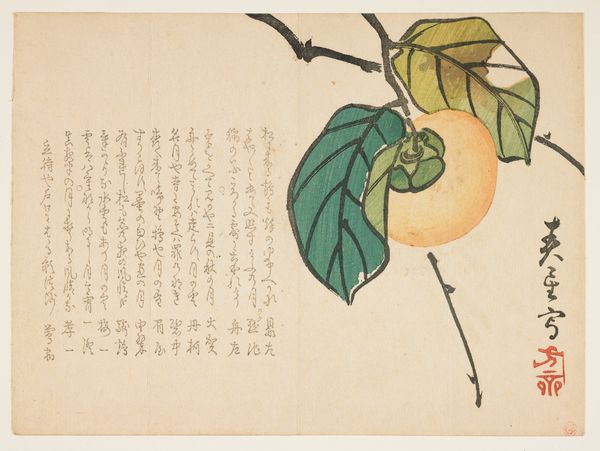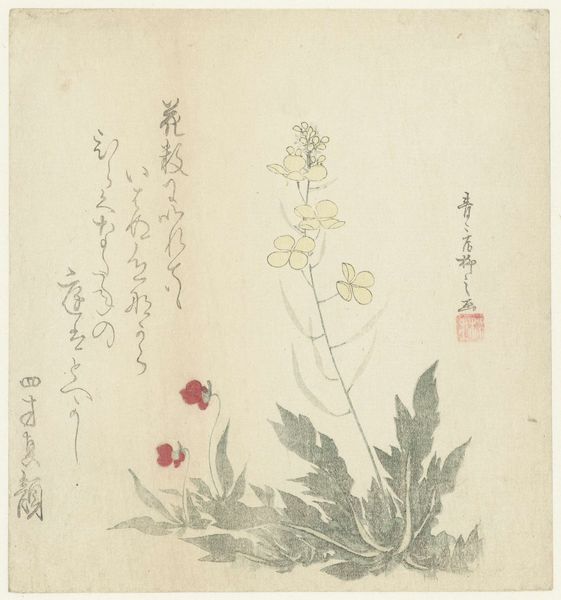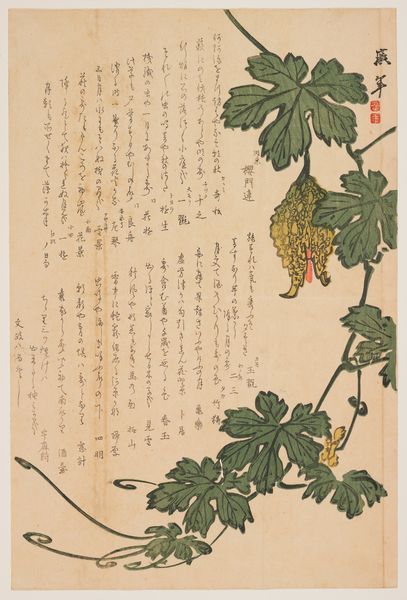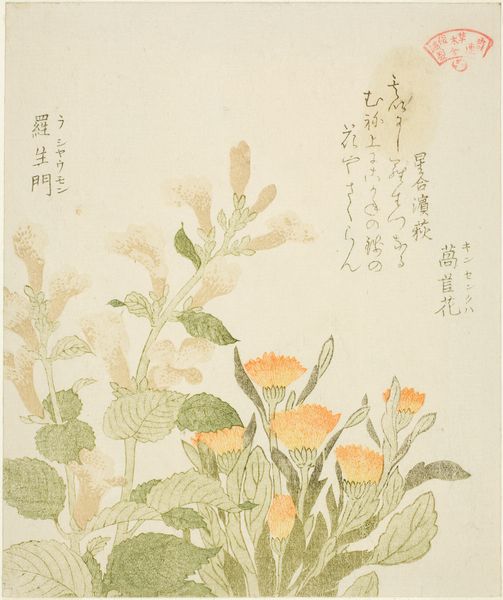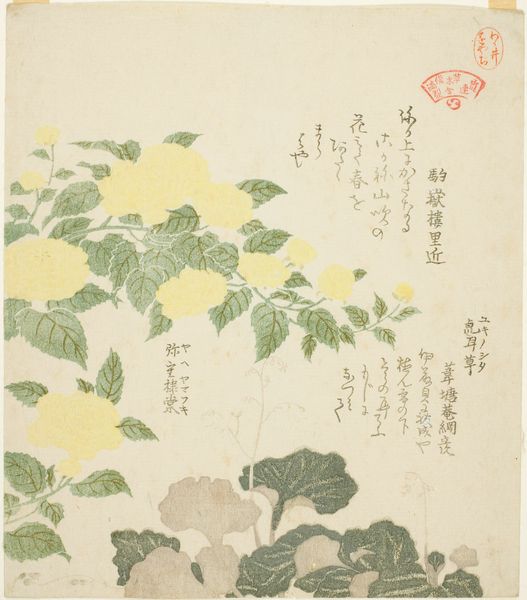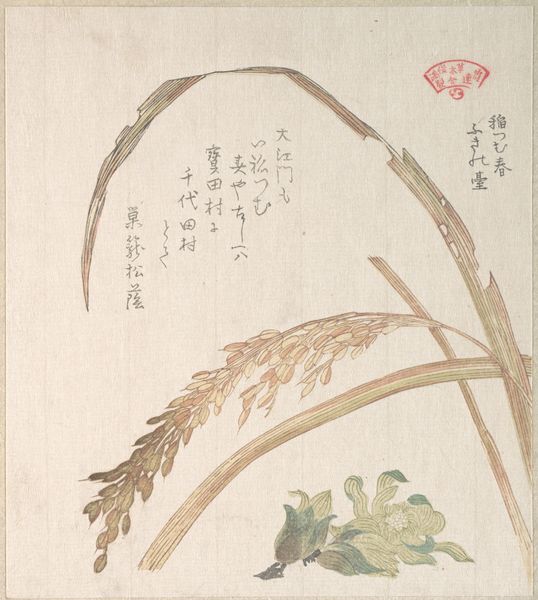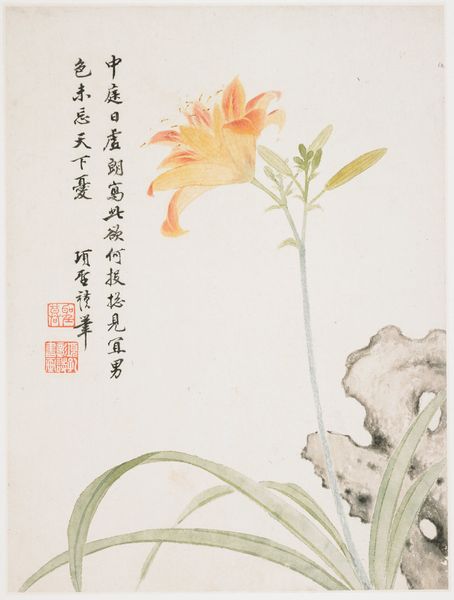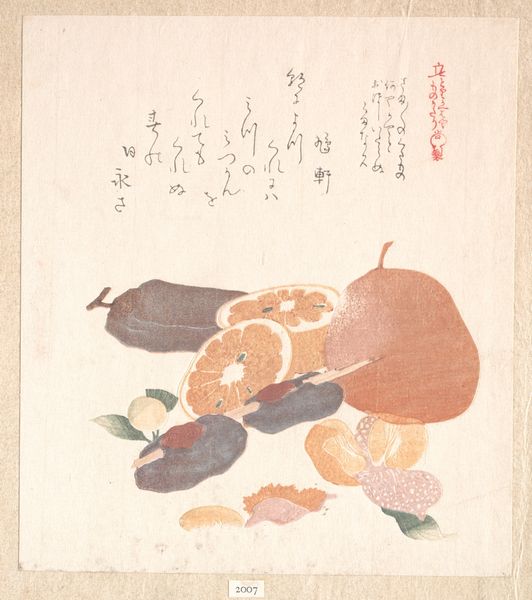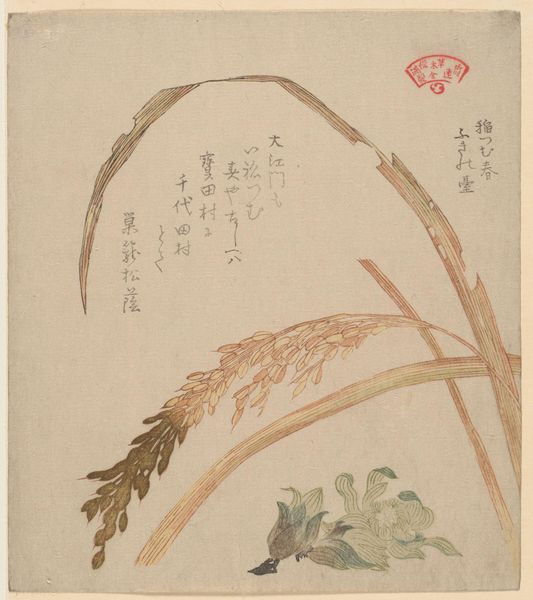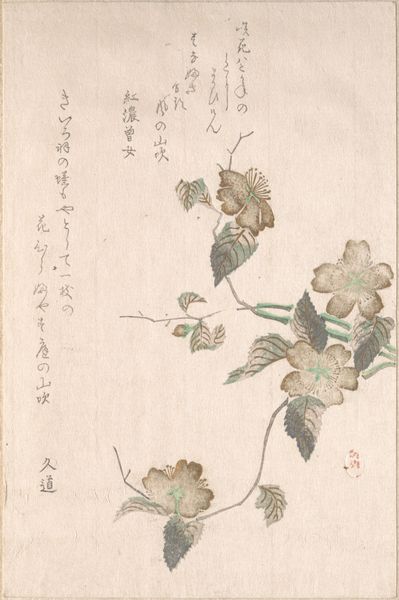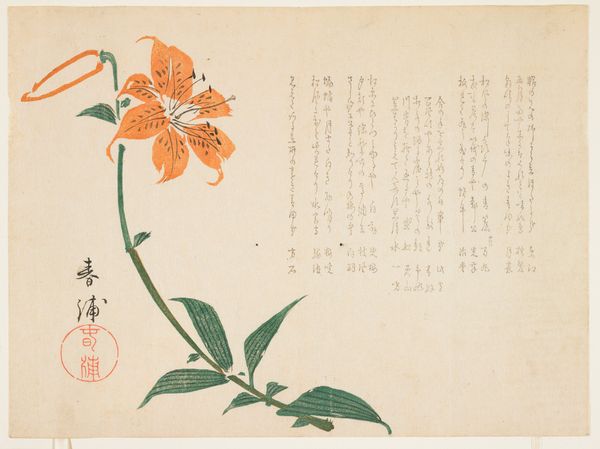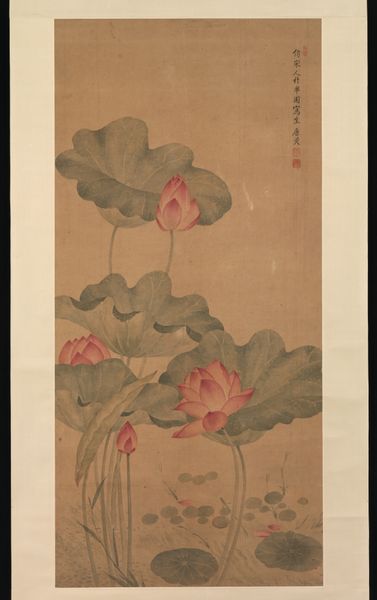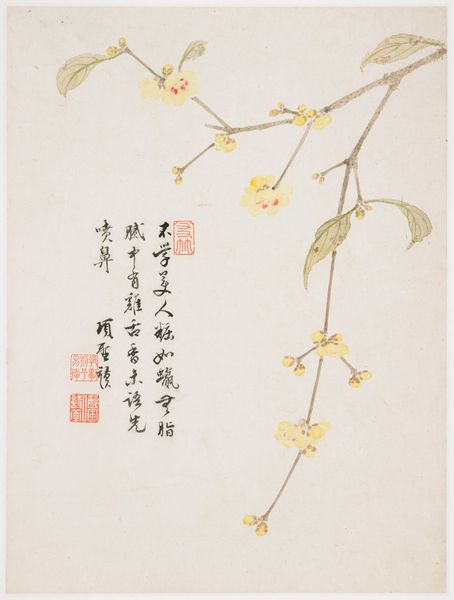
print, watercolor
#
water colours
# print
#
asian-art
#
watercolor
Dimensions: height 221 mm, width 151 mm
Copyright: Rijks Museum: Open Domain
Hirafuku Hyakusui created this woodblock print of a plant with lantern-like flowers in September 1913. This serene image of a plant should be understood in the context of early 20th century Japan. It's a period when Japan was rapidly modernizing, and artists were grappling with how to reconcile traditional Japanese aesthetics with Western influences. Hyakusui's print embodies this tension. The subject matter, a plant, is a traditional motif in Japanese art, reflecting a deep connection to nature, but the print's style reveals the influence of Western art movements. The simplification of forms and the use of flat colors are reminiscent of Japonisme that had captivated European artists. The print was created at a time when artistic movements sought to redefine the role of art in society and institutional structures. To fully understand this print, one needs to delve into the history of Japanese art institutions. We can research how they shaped artistic production during the Meiji and Taisho periods. This artwork is not merely a depiction of a plant, but a visual statement about Japan's evolving cultural identity.
Comments
No comments
Be the first to comment and join the conversation on the ultimate creative platform.
